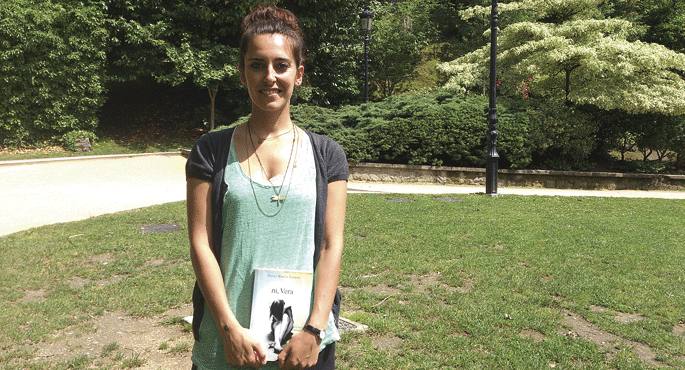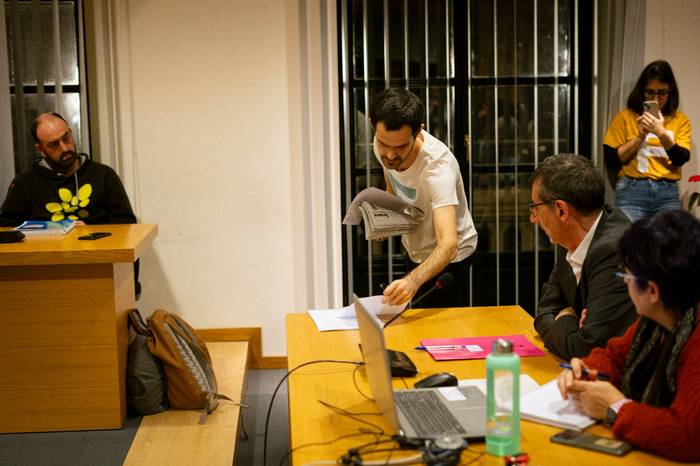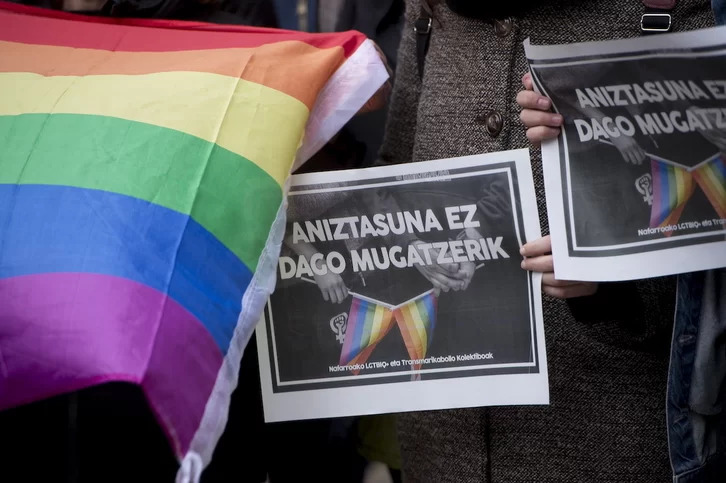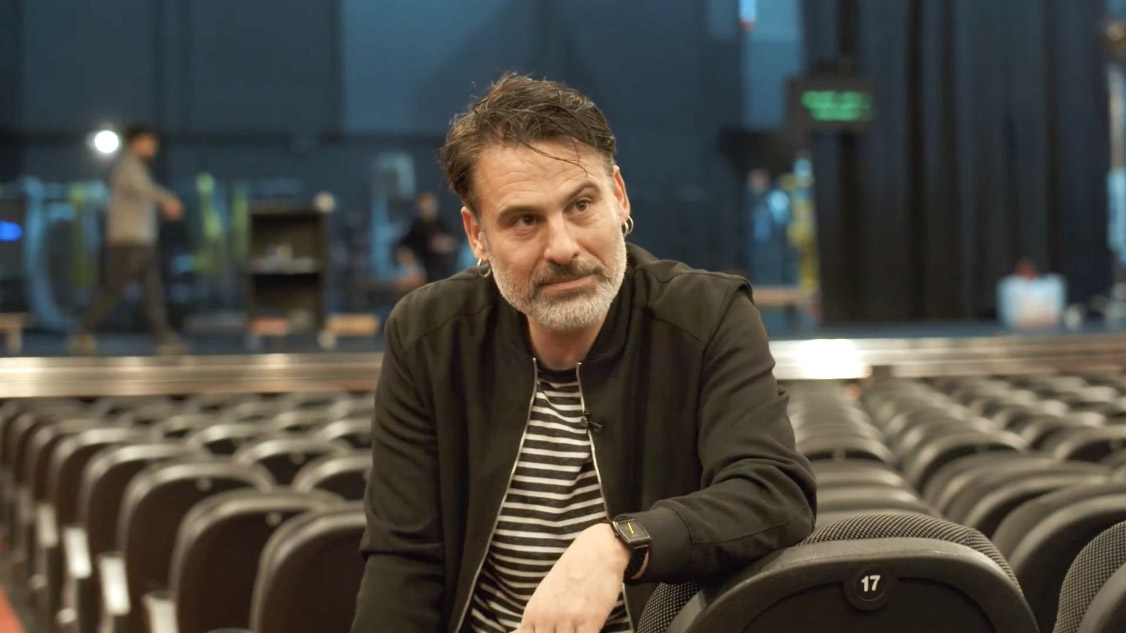"My vision of emotions is far from tags."
- Itxaso Martin comes to Basque literature with the novel “Madness from Madness” in his hand. Under the title Ni, Vera (Elkar), the film combines the process of a young woman in crisis with the history of her great-grandmother, who lived in the asylum.

What happens to Martina? It's not called anywhere.
It's something consciously done, because I'm not a lover of etiquette. Martina is in a crisis, and after all, to say that she is depressed or that she has schizophrenia, is to label the person, or label the moment she passes. I like to be careful about that, because Martina has a lot of me. I started writing because I had a bad time, and since I didn't want to label myself at the time, I didn't want to classify Martina.
In case of healing, isn't it important to know what you are facing?
I think it can be cured without labels. In mental illnesses, whenever the word sickness can be used, it is classified. At a given moment we can feel anxiety, and in anxiety there are also many different sensations, you can have some characteristics characteristic of depression. When there are hallucinations people talk about schizophrenia, but what happens if you suddenly feel something that doesn't appear in the symptoms? In addition, when they tell you that you have such a thing, you also get involved in that attitude.
Does it not lead us to increase the taboo of not wanting to name? Is calling crazy better?
Registration helps us in control. That is, we can know more or less what the problem is, but always from the control. We don’t like to say “I’m in a crisis and I don’t know what happens to me.”
Martina’s work seems harder than the crisis, “insanity counted from insanity,” in his words.
I don't know how hard it is. I mean something that has happened to me, too. Again, when I was in a group of readers, one of them told me that a bad time had passed and that he often felt identified. Perhaps because of these issues of suicide or hallucination, we believe that Martina has crossed the border, which is not a crisis. Although they are never mentioned, many people around us have ideas of this kind, but it is very difficult to accept them. We keep these sensations.
I didn't want to name it, because I think it's classifying it, and my point of view about emotions is far from those classifications and labels.
Writing is a therapy for Martin. When it's on the edge of the hole, it helps not to fall. Why is it so favorable?
Here are some of the ideas you have. It's very difficult to talk to others. What he writes does not go anywhere, it seems he has a conversation, many times with himself, and it also helps him to accept things. What you've written you can throw it away, on the other hand. Writing helps the villagers, get out when you get into the hole, empty.
You don't count the transition. Suddenly it is in a hole and after a while it is well. How does it achieve change?
In this type of crisis, it can be up or down from one second to another. There are times when you're strong and you want to face yourself and others when you're not able to. I don't think Martina is OK. He accepts many things, and for me that recognition is the first step of healing. Once internalized, it makes the decision not to make a judgment.
Going to the psychologist is often the last option. Martina doesn't want to go either.
Those we know as mental illness are still very afraid, the stigma is great. Even in common diseases, the patient fears the diagnosis. And saying that you have to go psychologist is not well seen.
I, on the other hand, increasingly feel more normal around me. I hear more and more about therapy issues.
Yes, it's true. Because there are many forms of therapy, to a large extent. For example, Gesthalt. But fear is still great, especially when there is no objective reason, when everything seems to be going well. Gradually it is normalizing and it may even have become fashionable among people of all kinds, because it is, after all, very expensive. If you go to Osakidetza you are immediately sent to the psychiatrist and then the pills come.
It talks about many misery, but splashing, without deepening: suicide, ill-treatment, violent hospital therapies... Have you left them for another time?
Now I'm doing the thesis, the woman and the psychiatry, I would say, that's what you're more entitled to. I wanted to enroll in the book and see it with her eyes. If I had thrown myself into suicide or any other matter, it would have been
a look externa.En at violent therapies, for example, I didn't want to talk about the functioning of psychiatry in the past, I wanted to see it through Vera's eyes. And I think the patients who were there were also not aware of the therapy that was being applied to them. These therapies are currently violent. I knew that by addressing the issue, I would enter the trial.
Here are two stories, two stories that are the alibi of the other.
Some have found it clear that there are two distinct parts. The part of Martina is written in second person. For me, that second voice is a great-grandmother, who speaks to a person who believes he is getting into the process of madness, after having lived through the process of madness. That's the connection between the two stories. It can be an alibi, but the reality is that it is. The approach to reality has been the final decision, after having tried several versions and writings.
How does the Basque literature look?
I've just arrived, I don't know if I'm conscious, it's hard to answer. I think it's a creative moment, but it doesn't reach every place. The people of Euskaldun have also asked me why I have written in Euskera, and that has drawn my attention.
Writing has always liked me, because it is a necessity for me. I'd like to go down this road, but I don't know if I'll find a story as strong as this.
Vagina Shadow(iko)
Group: The Mud Flowers.
The actors: Araitz Katarain, Janire Arrizabalaga and Izaro Bilbao.
Directed by: by Iraitz Lizarraga.
When: February 2nd.
In which: In the Usurbil Fire Room.























